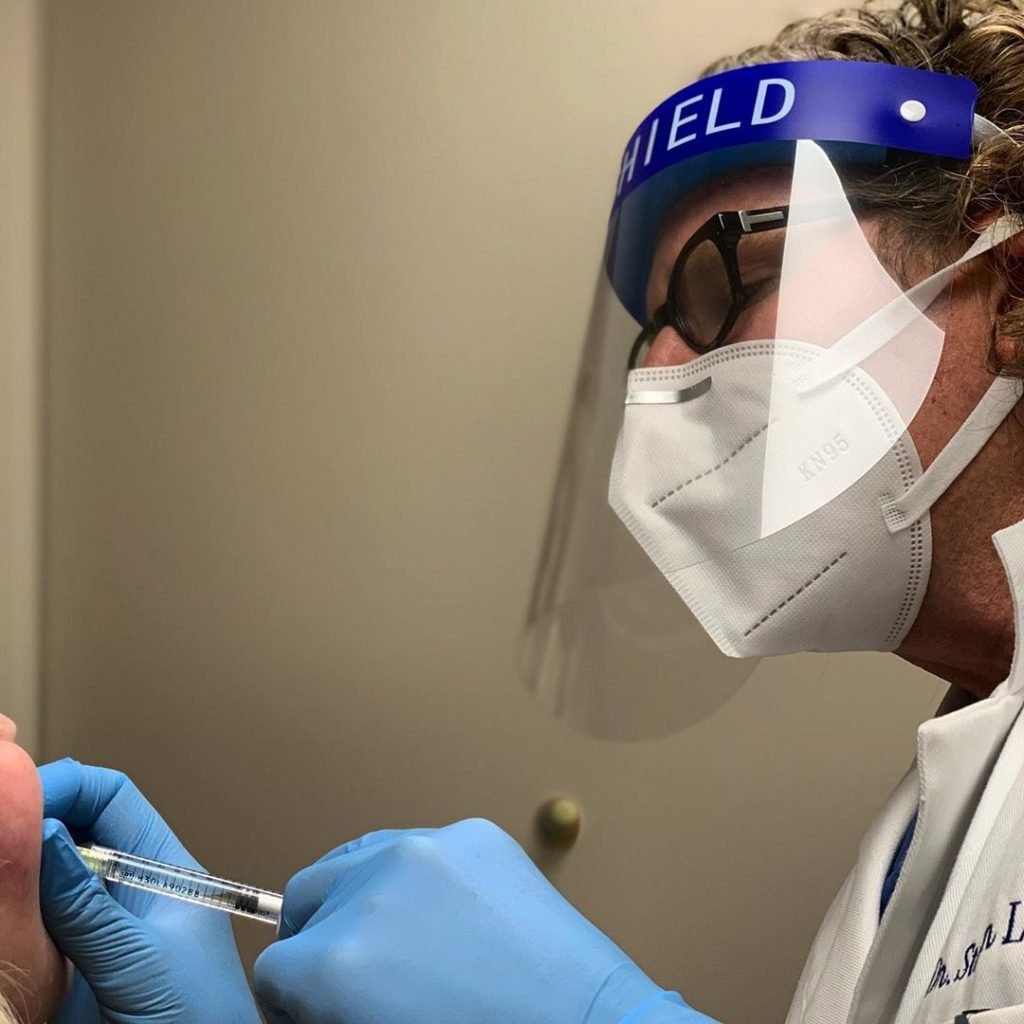As the stay-at-home orders lift and we collectively begin to ease into our new normal, there’s bound to be some residual anxiety. After all, we’re still in the grips of a pandemic, and some seem to be taking that notion more seriously than others.
Rest assured that, if you were planning to consult a board-certified plastic surgeon before all this, or if you had been doing so on an ongoing basis, we’ve implemented a number of measures intended to facilitate social distancing and ensure a clean, sterile environment. And we’ll be updating these protocols as new developments surrounding COVID-19 emerge.
For now, here’s an idea of what you can expect at your next visit.

In-person appointments may take a little longer to schedule
In addition to rescheduling backlogs of appointments that accumulated while plastic surgeons’ offices were closed across the region, many are seeing fewer patients a day in order to prevent them from crossing paths, as much as possible. In fact, most practices are eliminating their waiting areas altogether. Extra time between appointments is also needed to allow for new decontamination protocols to be carried out.
Basically, it may take longer to schedule an appointment with your plastic surgeon than it did before March.
To varying extents, that will be offset by virtual consultations. In recent months, online consults have become de rigueur across almost every branch of healthcare. Until a vaccine is available, that’ll likely remain the case in certain scenarios, like discussing a future surgery or following up on a past procedure.
Everybody will be screened and probably tested
Also to varying extents, plastic surgeons will be screening every patient, both prior to their appointment and upon their arrival. Ahead of your appointment, you can expect to be asked about your current health, recent symptoms, COVID-19 exposure or diagnoses, sick family members, travel history, and so forth. Upon your arrival, you’ll likely be asked the same questions again. You’ll also have your temperature taken, which is meant to detect asymptomatic carriers with low-grade fevers.
If there’s any question as to whether someone presents a risk, they’ll be asked to reschedule.
All hospital-based outpatient surgeries will require a pre-operative COVID-19 diagnostic lab test. (It’s the one with the deep nasal swab that detects active virus particles.)
Most plastic surgery societies, looking to emulate hospital policy, are advising their members not to perform office-based treatments or operate in private ORs without a negative COVID-19 diagnostic lab test. But, because the swab tests are still difficult to come by, many will be relying on antibody blood tests (the rapid finger-prick kind, most commonly) to flag patients who’ve been exposed to the virus.
Doctors will be performing the tests on a regular basis on themselves and their staffs as well, in addition to daily temperature and symptom checks.
While some of this may feel like an inconvenience, please know that these are safety measures. Every reputable plastic surgeon in this pandemic is approaching reopening in a methodical manner and with the intent to take every precaution possible to protect our patients.